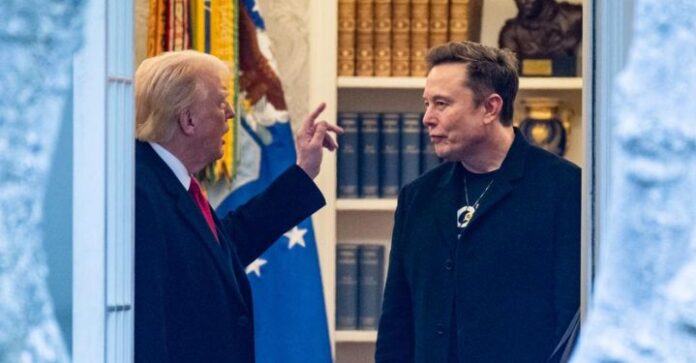Former President Donald Trump has publicly ended his once-strong alliance with Elon Musk, issuing a stern warning that any move by the billionaire entrepreneur to support Democrats in the upcoming 2025 midterm elections would constitute an “unforgivable betrayal.” The clash between two of the most influential figures in American politics and technology marks a sharp departure from their previously aligned interests.
Speaking in a televised interview with Fox News, Trump accused Musk of “disloyalty” after reports emerged that Musk is considering funding Democratic candidates in key swing states. “I gave Elon everything,” Trump said. “Respect, access, support. And now he wants to play for the other side? That’s betrayal—pure and simple.”
Musk, for his part, has been increasingly vocal about his discontent with Trump-era policies, especially the proposed 2025 “One Big Beautiful Bill,” a sprawling tax-and-spending measure that critics, including Musk, argue would stifle innovation and raise inflation. The Tesla and SpaceX CEO tweeted last week that the bill “rewards political loyalty, not merit or science.”
Trump retaliated with his signature brand of political pressure, hinting at potential government reviews of SpaceX contracts and suggesting Musk’s companies could lose access to federal funding and tax incentives. “We have laws for a reason,” Trump said. “And if someone wants to bankroll the party that’s trying to destroy America, there will be consequences.”
The relationship between the two powerhouses had once been marked by mutual praise. Musk was consulted on several major infrastructure and tech-related initiatives during Trump’s presidency, and in return, he publicly supported Trump’s deregulation agenda. Musk also contributed significantly to Trump’s 2024 reelection campaign, making his apparent pivot especially jarring for Republican insiders.
GOP strategist Lisa Montgomery said the fallout could split wealthy donors. “Trump’s base loves that he doesn’t back down from anyone,” she said. “But Musk isn’t just another businessman—he’s a cultural force. His political independence is a real threat to Trump’s grip on the right.”
Musk has neither confirmed nor denied plans to support Democrats but has floated the idea of creating a new centrist party—possibly called the “Forward Fusion” party—that would attract independents and moderate Republicans disillusioned with the extremes of both major parties.
The break has already caused tremors in financial markets. Tesla shares dipped 2.3% following Trump’s threats, and a sharp selloff hit SpaceX-affiliated defense contractors. Investors appear rattled by the prospect of federal pushback against companies closely tied to Musk.
Meanwhile, Vice President JD Vance and other Republican leaders have reportedly reached out to Musk to “clear the air,” although insiders say those overtures have gone unanswered.
Whether this political divorce is permanent remains to be seen. But one thing is clear: the Trump-Musk alliance that once seemed like a powerful merger of populism and technology is now in ruins—and the fallout could reshape the political map in 2025.

